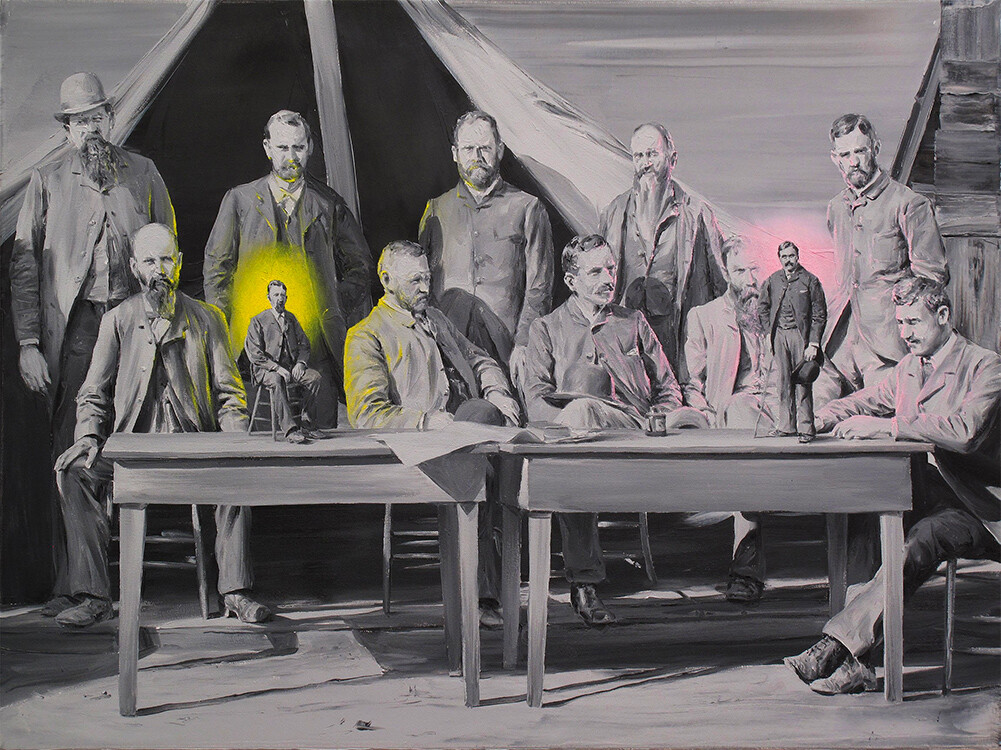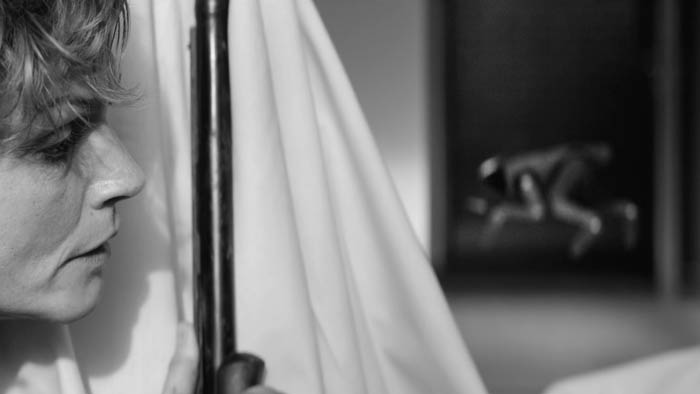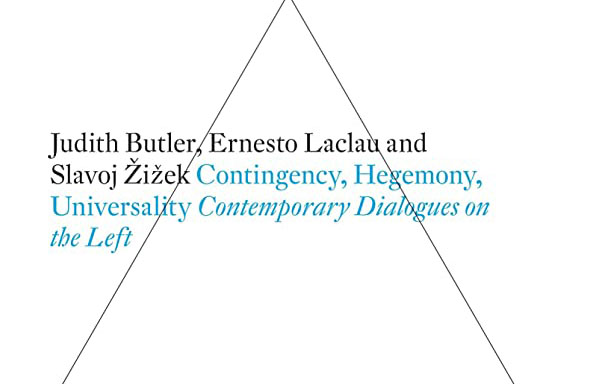 "Pity and Resentment in Obsessional Neurosis” by Andrey Denisyuk, transl. Ignas Gutauskas
"Pity and Resentment in Obsessional Neurosis” by Andrey Denisyuk, transl. Ignas Gutauskas
It's been a while since a serious theoretic effort has been dedicated to the study of obsessional neurosis. Yet, it is precisely the obsession that shapes contemporary subjectivity in a way that it provides it with a dimension of historicity. To understand what is going on with the subject today implies analyzing the relations of neurotic with his own neurosis. Denisuyk's article follows this trajectory.
 "Psychoanalyst in Question" by Ivan Skopin
"Psychoanalyst in Question" by Ivan Skopin
By placing the desire at the very core of psychoanalysis, Freud not only created the idea that this psychoanalysis should be of a certain kind, that any way of acting is not appropriate here, but he also showed the way of dealing with this desire. The ego-ideal is what pushes psychoanalysts to complain that their colleagues’ modus operandi is not at the level it should be. And they do complain because this is the way Freud himself dealt with the desire inscribed in the condition of psychoanalysis: when he questioned the theoretical research of his followers and their methods of clinical practice, he himself presented a different image of desire.
 "Clinic in the Hole: How the Question of Admission Generates and Destabilizes Psychoanalytic Institutions Today" by Alexander Smulansky, transl. Eugenia Konoreva
"Clinic in the Hole: How the Question of Admission Generates and Destabilizes Psychoanalytic Institutions Today" by Alexander Smulansky, transl. Eugenia Konoreva
Exciting scientific passion in his associates while simultaneously scolding and reproaching them for their inability to sustain the intellectual and conceptual level of the method he discovered, Freud unwittingly plants in the psychoanalytic history and institutions emerging on its grounds something that is subsequently expressed in the displacement of the source of this scolding and incessant criticism to the level of the institutional interaction.
 "The Child and the Woman's Enjoyment" by Alexander Smulansky, transl. Ignas Gutauskas
"The Child and the Woman's Enjoyment" by Alexander Smulansky, transl. Ignas Gutauskas
No matter how often various psy-theories, including psychoanalysis, stress the importance of the mother, something is constantly avoided here. Namely, a crucial observation that it is not the maternal but something exclusively feminine in the figure of the mother that fundemantally marks the subject's ogranization. The female phantasm whose frame is not only umlimited to, but does not necessarily include any references to the child - confronts the child with the very concept of desire.
 "New Encounter with the Hysteric's Desire" by Eugenia Konoreva
"New Encounter with the Hysteric's Desire" by Eugenia Konoreva
My recent article published in the "Stasis" journal presents alternative theoretical trajectories in the exploration of the hysteric's desire. Expanding the previous "Stasis" issue, devoted to the potential reload of the relations between feminism and psychoanalysis, the article demonstrates that, given their conflicting chacater, the relations between these two disciplines hardly ask for a new synthesis but would rather benefit from unothordox solutions in unexpected places. Oddly enough, one of such places today is an otherwise well-worn question of hysteria.
 "The Real – What’s Wrong With It?" by Alexander Smulansky, transl. Eugenia Konoreva
"The Real – What’s Wrong With It?" by Alexander Smulansky, transl. Eugenia Konoreva
Having the reputation of the most provocative and inaccessible concepts introduced by Lacan, the Real excites the minds not only in the psychoanalytic community but far beyond the psychoanalytic framework. Introducing the Real in connection with the political is a well established tradition in the history of critical thinking, however, this tricky liaison produces numerous fluctuations of both internal and external theoretical character. Therefore, getting back to the most substantial debate concerning the position of the Real could shed some light on the hitherto unnoticed circumstances.
 Vienna - Paris - Saint Petersburg by Eugenia Konoreva
Vienna - Paris - Saint Petersburg by Eugenia Konoreva
Considering great interest psychoanalysis evokes in the West among both professional community and general academia, there has been little said about its fate in the post-Soviet space. The history of psychoanalysis during the twentieth and the twenty first centuries in Russia could be characterized as a protracted intermission superseded by a frantic surge of nearly epidemic interest. However, aside from this debatable history, right now it seems to be the place where lacanian psychoanalysis can get its second wind and overcome its current stagnation.
 "Expanding Male Phantasm. How Freud’s Desire Turned Into Psychoanalysis" by Alexander Smulansky, transl. Eugenia Konoreva
"Expanding Male Phantasm. How Freud’s Desire Turned Into Psychoanalysis" by Alexander Smulansky, transl. Eugenia Konoreva
Alexander Smulansky relates the emergence of psychoanalytic discipline with Freud’s desire directed to a particular object that appeared in his office. This object is the speech of the hysteric who was finally invited to talk and to do it freely. Listening to that speech, Freud discovered that the hysteric’s difficulties does not concern only her personal problems but are rather addressed to the function of desire per se.
 "Queer Studies and Phallic Function" by Alexander Smulansky, transl. Eugenia Konoreva
"Queer Studies and Phallic Function" by Alexander Smulansky, transl. Eugenia Konoreva
Pursuing lacanian logic of jouissance as the main discursive operator, psychoanalytic theoretical apparatus elaborated by Alexander Smulansky offers unexpected solutions in what concerns the question of femininity and its crucial importance as a constitutive element of modernity. This article demonstrates the way queer studies diverge from the trajectory of following the fate of contemporary subject and marks a number of theoretic solutions that could allow us to analyze contemporary situation more accurately.
 Review of “Paternal Metaphor and Desire of the Analyst. Sexuation and Its Transformation in Analysis” by Eugenia Konoreva
Review of “Paternal Metaphor and Desire of the Analyst. Sexuation and Its Transformation in Analysis” by Eugenia Konoreva
Smulansky’s recent book deals with the most sensitive question within psychoanalysis as a clinical and theoretical discipline, namely – the desire of the analyst. "Paternal Metaphor and the Desire of the Analyst" - is his third book and it follows the major trajectory of his thought, set forth during 'Lacan-likbez' seminars and in two previous publications. The last book investigates perturbations of psychoanalysis as a discourse marked by a peculiar and non-analyzed element – namely, Freud’s original desire. Having provided a comprehensive commentary on contemporary psychoanalytical deadlocks invoked by a dubious position of analyst’s desire, the author manages to introduce several fresh, unorthodox concepts, which could provide a brand-new theoretical twist in the field.
 "What Is Contemporary Psychoanalysis?" by Alexander Smulansky, transl. Eugenia Konoreva
"What Is Contemporary Psychoanalysis?" by Alexander Smulansky, transl. Eugenia Konoreva
The English translation of the interview that was given by the prominent Russian theorist and psychoanalyst - Alexander Smulansky. In this text, Smulansky presents some of his ingenious elaborations of Lacanian psychoanalysis. Despite a widespread belief in the specific damage of the contemporary subject, the psychoanalytic approach does not reveal any radical transformations in the subject's structure, apart from the perturbations in what could be called the politics of jouissance. Smulansky talks about the discursivity of jouissance beyond the leftist perspective, about the unknown aspects of the desire of the analyst, he introduces publicity as a new gender and reading as a form of sexuation.